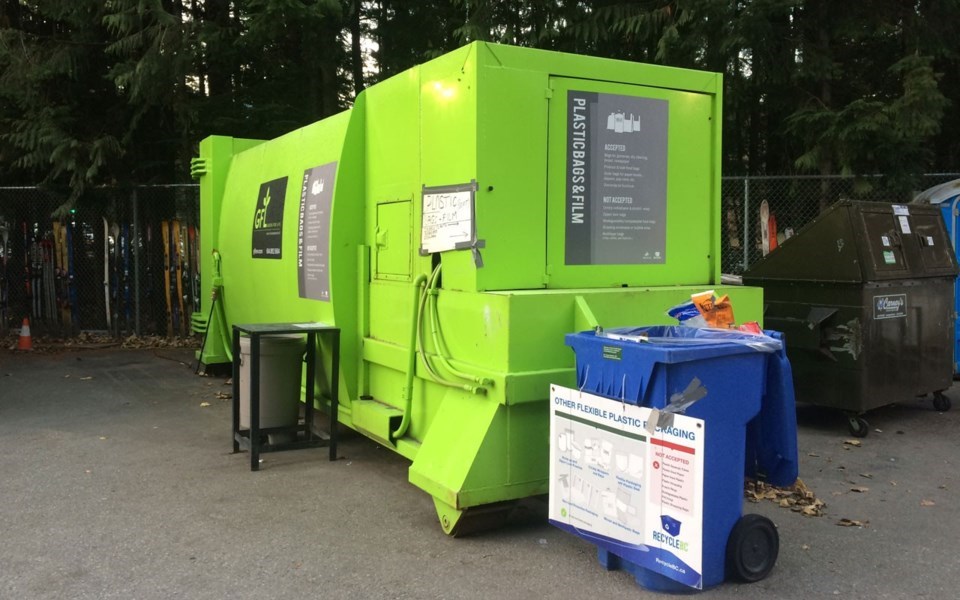With the goal of reducing waste and greenhouse gas emissions, Whistler’s mayor and council endorsed a new Zero Waste Action Plan at the Aug. 17 council meeting.
The plan was developed with the guidance of the Resort Municipality of Whistler’s (RMOW) Zero Waste Select Committee of Council, and replaces the 2013 Zero Waste Plan.
It sets out new waste-reduction targets for Whistler, including: an 80-per-cent reduction in landfill waste (by volume and weight) by 2030; reducing the per-capita landfill waste generation rate to below 350 kilograms per person per year by 2025; a 95-per-cent reduction from 2007 levels in waste sector GHG emissions by 2030; zero contamination of all waste streams by 2030; and 95 per cent of organic waste diverted from landfill by 2030.
To hit those targets, the plan sets out strategies and actions organized into four material and product categories, said manager of transportation and waste management Andrew Tucker, in a presentation to council on Aug. 17.
The categories “reflect the strategies associated with each sector to develop new programs to expand on the needed infrastructure, to ensure that the waste is collected with minimum contamination,” he said.
“So that's not just municipal infrastructure, that's other businesses, that's buildings, organizations in town that are currently challenged with their waste collection rooms.”
The two key performance indicators typically used to gauge success are annual per capita waste generated and the annual waste diversion rate, Tucker said.
Whistler’s total landfilled waste stayed mostly steady from 2019 to 2020, despite the COVID-19 slowdown last year (11,841 tonnes and 11,607 tonnes, respectively).
The per-capita disposal rate fell below the 350 kg/person target for the first time in 2019 (to 325 kg/person) before climbing again last year to 397 kg/person.
“Given the nature of who we are, we use a population equivalent to calculate this value—so that's taking into consideration all of our visitors and residents that reside in Whistler throughout the year,” Tucker said.
When the resort’s new Solid Waste Bylaw was introduced in 2017, the local diversion rate climbed from 39 per cent to 43 per cent, where it has stayed mostly steady.
A waste audit at the Whistler Transfer Station in 2019 found that Whistler is still sending recyclables to landfill, primarily from multi-family residential strata properties and those in the industrial, commercial and institutional sector.
With council’s endorsement, the next step for the plan is to engage the community, which includes developing online education tools, holding education workshops and advocating for changes to policy such as extended producer responsibility (which puts the onus on producers and manufacturers to make more environmentally-friendly decisions).
“We have no choice but to do better. Every single one of us has an important role in reaching our community targets,” said Mayor Jack Crompton in a release.
“I look forward to implementing the actions of the Zero Waste Action Plan as both a policy maker and a citizen of Whistler. I challenge community members to review the plan and commit to one zero-waste action for the rest of 2021. Whether it’s choosing more sustainable building materials or composting food waste, it moves us towards our community targets.”
Read the plan at whistler.ca/zerowasteplan, and find more info at whistler.ca/waste.





